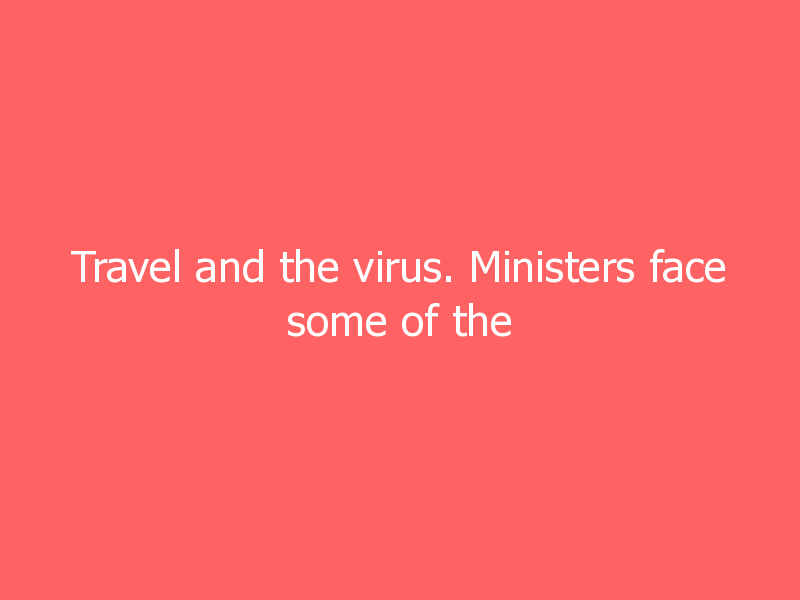
Tomorrow, the Government faces an extraordinarily difficult decision: what does it do about international arrivals, given the increasing threat of new Coronavirus strains?
Since the “UK” and “South Africa” variants were discovered, ministers are understandably fearful about other mutations getting into the country, which could undermine progress – and, even worse, prove resistant to the current vaccines.
This is why the Government has already taken the bold step of banning travel from South America, Portugal and many African countries, due to concerns over new and potentially more infectious variants.
But there are bigger questions for the Cabinet’s Covid operations committee, tasked with deciding the future travel policy, which will meet on Tuesday.
For instance, does the Government go ahead and stop all travel, as Israel has recently done? The idea once seemed unthinkable, but on Friday George Eustice, the Environment Secretary, said the possibility of a full UK border closure had been “considered”, and it’s understood that this will be tabled tomorrow.
A more likely eventuality, however, is that international arrivals have to quarantine at hotels, organised by the Government but paid for by themselves – which has been the case in Australia, New Zealand and Thailand.
The detail missing is who this measure applies to, with Matt Hancock and Priti Patel reportedly wanting all arrivals to quarantine – whereas Grant Shapps and Rishi Sunak are apparently pushing for a more selective policy, only applied to high-risk countries.
Given that Patel recently said she had argued for closing the border in March – an idea that now has considerable endorsement – she may find herself winning this argument.
A widespread quarantine policy does mean, at least, that all countries are treated as potential threats, in terms of having mutant strains of Coronavirus, which is better detected by those with more advanced levels of genomic sequencing.
As we’ve seen before in the crisis, Coronavirus can come from regions that are least expected (in the first wave, many worried about China, whereas it was travel from Italy, Spain and France that had the most impact).
However, as Sebastian Payne points out in the useful thread below, quarantine for every traveller would also be a huge logistical challenge for the Government, whose plan ultimately relies on the number of people coming to the UK reducing, as they’re put off by the cost and effort of self-isolation. (And if that does not happen, matters will become even more complicated).
The UK is heading for mandatory hotel quarantine – likely to be signed off for all arrivals to the UK by ministers tomorrow.
But it’s an incredible complex policy that is far from cost free. Much will depend on how tough the government decides to act. Some thoughts:
— Sebastian Payne (@SebastianEPayne) January 25, 2021
Furthermore, some say it’s simply too late to put in this measure, especially with travel at its current level. All it takes is one person to spread a new variant – already there are 77 cases of the “South Africa” Coronavirus variant in the UK, for instance. That’s before we get to risk from goods being transported in and out of the country (is it a coincidence that the UK variant emerged in a county with a major port?).
All of these areas will enter the decision-making process tomorrow, much of which is a sad paradox of the UK’s success as an international travel hub – and in essence a trade-off.
If the Government does too little it may find itself dealing with a mutant strain that’s more damaging than the immediate economic hit of banning travel, or using the hotel policy.
Too much, and the Government may find it has destroyed an industry – while being unable to trap new variants.
It is worth saying, however, that when the Government has stepped up its measures in the past, they have aged well. As I wrote last year, in July there was huge uproar about its 14-day quarantine rule – which now seems completely accepted.
Either way, no one can envy the choices that have to be made.
Originally found on Conservative Home Read More







